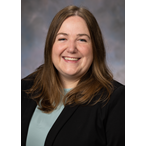A New Campaign to Help Teens Identify “Green Flags” for Healthy Relationships

This year, about 1 in 3 young people will experience abuse in a dating relationship. This abuse can include physical, verbal, emotional or sexual violence from a dating partner.
That’s why in March, during Teen Dating Violence Awareness Month, The Center for Family Safety and Healing at Nationwide Children’s Hospital launched a new campaign called Green Flags to help teens build and sustain healthy relationships.
“Red flags” is a term that describes characteristics or actions that signal “stay away” from an unhealthy or harmful relationship. Green Flags seeks to flip the conversation on teen dating abuse by instead focusing on “green flags” – the qualities of a healthy relationship.
Green Flags provides resources to educate young people on what healthy relationships look like, encourage them to set boundaries, equip them to identify signs of abuse and offer support to address and help prevent abuse.
“Research shows that teenagers are often hesitant about engaging with formal resources,” said Caitlin Tully, a community educator and training supervisor with The Center for Family Safety and Healing at Nationwide Children’s Hospital. “Research also shows that having a safe, healthy adult to talk to increases teen safety and resilience.”
This fact makes Green Flags call, text and chat support resources critically important. Monday through Friday from 8 a.m. to 8 p.m., teens can anonymously speak with trained specialists and ask about issues like relationship problems or how to support a friend. Parents, educators and other safe adults can also reach out with questions.
According to Tully, traditional approaches to teen dating abuse by sharing red flags can often be a fear-based approach. “Young people might think, ‘That's not me’ or, ‘It's not that bad’,” she explained.
A teenager once told Tully that she’d seen a red flags checklist and dismissed any concerns by convincing herself that her relationship wasn’t truly bad – or at least, not bad all the time. But when she saw a list of “green flags”, her perspective shifted.
“She said, ‘I see the lack of joy in our relationship; I see how much smaller my life is getting when I'm with them’,” said Tully. “It's harder to ignore the absence of good in a relationship.”
By starting with what teens should want rather than what they should avoid, Green Flags provides a trauma-sensitive framework to help young people envision what a healthy relationship should look like in their lives.
Safe adults like parents and educators can find resources on the Green Flags website to help them learn how to talk to the young people in their lives about safe and healthy dating.
“Conversations between safe adults and young people are the number one protective factor against teen dating abuse,” said Tully. “A big part of Green Flags is increasing adult capacity to support healthy teen relationships.”
The educational resources on the Green Flags website can help parents and caregivers be more proactive in conversations with young people before a relationship becomes unhealthy.
“The earlier parents have these conversations, the healthier the outcomes are,” said Tully.
In addition to supporting the victims of teen dating abuse, Green Flags seeks to prevent unhealthy behavior and provide accountability. Often, young people engaging in harmful behavior are repeating patterns they’ve seen in their own lives, or they lack the tools to deal with conflict in a healthy way.
“We’re seeking to disrupt harmful behaviors early and provide resources that young people can turn to while also providing accountability,” said Tully.
Those looking to get involved can visit the Green Flags website, follow the campaign on Instagram, and share educational materials and support resources with others.
“Our goal is to get this resource into as many hands as possible,” said Tully.

“We’re seeking to disrupt harmful behaviors early and provide resources that young people can turn to while also providing accountability.”



